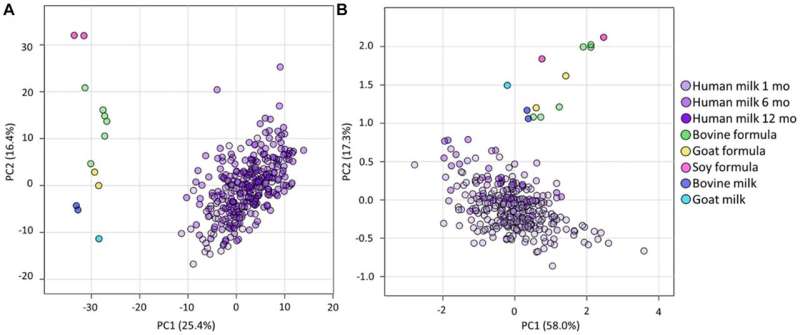This article has been reviewed according to Science X's editorial process and policies. Editors have highlighted the following attributes while ensuring the content's credibility:
fact-checked
peer-reviewed publication
proofread
Fats found in breastmilk may provide answers to why breast is best

In a paper published on Aug. 30 in Frontiers in Nutrition, Baker Heart and Diabetes Institute researchers, in collaboration with researchers from the Murdoch Children's Research Institute, have found that ether lipids are present in significantly higher concentrations in breastmilk compared to formula and other animal- and plant-based milks. This finding provides a possible explanation as to why breastmilk is considered the most beneficial food source for early life development.
Ether lipids are known to have cardioprotective benefits, and low levels are associated with diseases including atherosclerosis and fatty liver disease. Ether lipids have also been linked to immunity in adults because of their structural and functional importance in immune cells, signposting the possibility of their role in early life immune protection.
Breastfed infants have been shown to have lower disease risk and better short- and long-term outcomes than formula-fed infants. There are positive associations between breastfeeding and immune system development, neurological development and growth trajectories, and a decreased risk of obesity, diabetes and non-communicable diseases.
In her study, the most comprehensive breastmilk lipidomics study to date, Baker Institute research scientist and paper author Dr. Alexandra George found that the makeup of lipids in breastmilk (the breastmilk lipidome) differs significantly from that of infant formula and animal milk, and importantly, that breastmilk is rich in ether lipids.
She said lipids make up approximately 3%–5% of breastmilk and provide the majority of energy to breastfed infants. They also deliver potentially bioactive species with critical roles in early life.
"We found that there are major differences in the lipid composition of breastmilk, infant formula, and other animal/plant-based milks, and that ether lipids were typically 10 times more abundant in breastmilk than in formula," she said. "We were also first to establish that the breastmilk lipidome impacts infant circulating lipids, where we found ether lipids to be up to 19-times higher in breastfed infants than formula-fed infants at 6 months of age.
"These findings have important implications for infant nutrition and health and suggest that increasing the levels of ether lipids in the maternal diet could lead to increased breastmilk ether lipid content and potentially alter infant circulating ether lipids. Circulating lipids are important for infant metabolic health and disease risk, as early-life lipid metabolism has been linked to the development of chronic diseases such as obesity and type 2 diabetes later in life."
"This research has identified just how different these nutrition sources are," she said. "Our work aims to continue to explore the importance of ether lipids in early life health, and the next steps will be to develop dietary supplements that can be given to breastfeeding mothers to boost their levels of ether lipids, which vary considerably between breastfeeding women, and to potentially add to formulas to hopefully provide some of the same benefits to formula-fed babies that breastfed infants currently receive."
More information: Alexandra George et al, Defining the lipid profiles of human milk, infant formula, and animal milk: implications for infant feeding, Frontiers in Nutrition (2023). www.frontiersin.org/articles/1 … ut.2023.1227340/full


















